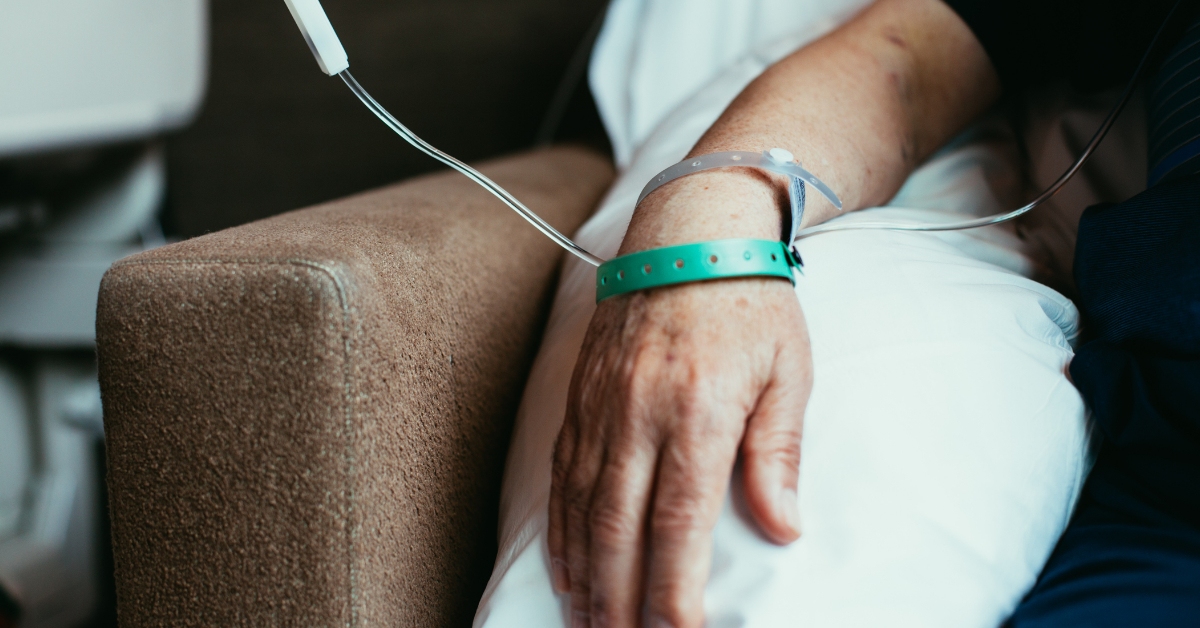Around 4,900 extra cancer cases each year are linked to deprivation in Scotland, according to a new report.
The Cancer Research UK study highlighted the “stark” and “unacceptable” health inequalities facing cancer patients north of the border and called for action to tackle them.
It comes after a recent Public Health Scotland (PHS) report found that people living in Scotland’s most deprived areas are 74% more likely to die from cancer than those in the least deprived.
The new Cancer Research UK study found that those living in the poorest areas of Scotland are more at risk of developing cancer than those in more affluent communities and are more likely to be diagnosed at a later stage when it can be harder to treat successfully.
The charity is calling on the Scottish Government to develop a “bold, ambitious and fully funded” strategy to ensure no-one with cancer is disadvantaged because of where they live or due to financial pressures.
Michelle Mitchell, chief executive of Cancer Research UK, said: “It is unacceptable that people in Scotland are 74% more likely to die from cancer if they live in an area of higher deprivation.
“This landmark report offers the first comprehensive picture of deprivation and cancer in Scotland, setting out in detail the stark inequalities in health and cancer across the country.
“Right now, people from more deprived populations are more likely to develop cancer, are less likely to take up their invite for cancer screening and face greater barriers to seeking help for potential cancer symptoms.
“The Scottish Government’s forthcoming cancer strategy is a key opportunity to tackle cancer inequalities.”
The report found that smoking and excess weight, the “two biggest causes of cancer”, remain persistently high among Scotland’s more deprived populations, which leads to a higher incidence of cancer among these groups.
Researchers also found that screening uptake is far lower in more deprived communities.
Bowel cancer screening is 38% lower and breast cancer screening is 32% lower in the most deprived populations compared with the least deprived.
Cancer Research UK said that the 4,900 cases a year equates to more than 13 extra new diagnoses per day that could be avoided if there were not health inequalities.
Melanie Finlay, 48, a mother from Inverness who has secondary breast cancer, said more should be done to ensure equality for people facing cancer.
She said: “Cancer affects all of us, it doesn’t discriminate.
“It is unfair if people living in one area or community in Scotland have less chance of surviving cancer because of who they are, where they live or barriers they face while trying to get treatment.
“Beating cancer should be beating cancer for all.”
A Scottish Government spokesman said: “We know that the earlier cancer is diagnosed the easier it is to treat and even cure which is why we continue to invest in our Detect Cancer Early (DCE) Programme, initially launched in 2012.
“We recognise that the impact from the Covid-19 pandemic may have exacerbated inequalities within screening.
“A key ministerial priority is reducing inequalities in access to and uptake of screening programmes. That is why we committed up to £2.45m to the Screening Inequalities Fund over the next two years to build a programme of evidence-based, sustainable and scalable projects that tackle inequalities in a systemic way.
“Last month we announced that the next two Rapid Cancer Diagnostic Services (RCDS) will be established in NHS Lanarkshire and NHS Borders to add to RCDSs in NHS Ayrshire and Arran, NHS Dumfries and Galloway and NHS Fife.
“Addressing obesity remains a public health priority to ensure Scotland is a place where we eat well, have a healthy weight and are physically active.
“Our Diet and Healthy Weight Delivery Plan sets out ambitious and wide-ranging action to address this challenge, including our aim to halve childhood obesity by 2030.
“Our goal is a tobacco-free generation of Scots by 2034 and a number of new strategies are currently being considered as part of our refreshed Tobacco Action Plan including improved support for people who want to quit.”
Follow STV News on WhatsApp
Scan the QR code on your mobile device for all the latest news from around the country


 iStock
iStock
























